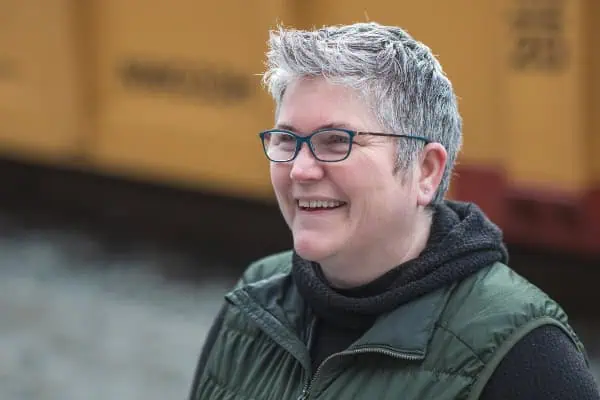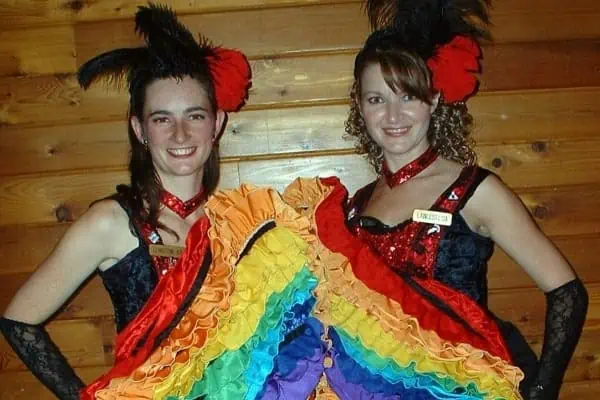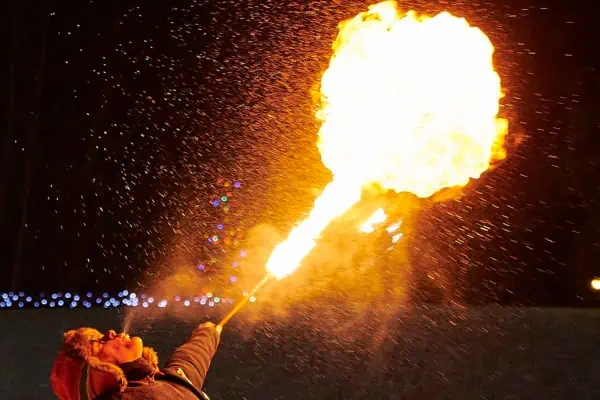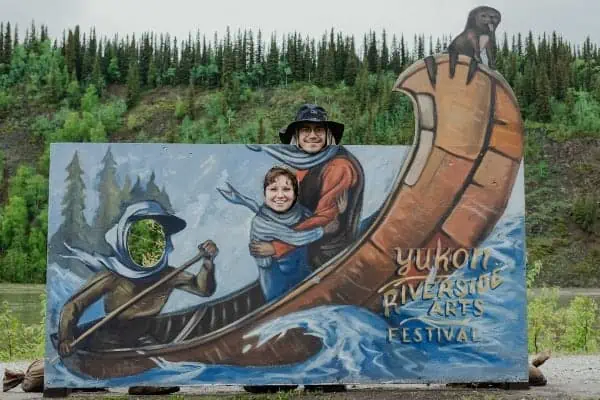Mike Faughey-Scraggs is an orthopedic surgeon at Leeds Teaching Hospital in England. He’s a former high diver and an experienced mountaineer, having scaled Mount Kilimanjaro in Tanzania. In the summer of 2008, he participated in the grueling Yukon River Quest, paddling his one-man kayak from Whitehorse to Dawson City. Added to these impressive qualifications is the fact that Mike only has one leg.
Whitehorse director Allan Code tells Faughey-Scraggs’s story in the documentary Team Bones, making its world premiere at the upcoming Available Light Film Festival. With the aid of his support assistant and colleague, retired emergency room nurse Tracey Pelham, Faughey-Scraggs braved the world’s longest river paddle race: 740 kilometres.
At the age of 24, while studying botany at Liverpool’s university, Faughey-Scraggs was riding his motorcycle when a truck sideswiped him in September of 1992. He was dragged under the truck and his leg was crushed beneath it. His recovery from the accident was intensely painful, and he suffered from chronic bone infection as a result. After two debilitating years, Faughey-Scraggs opted to have his leg amputated to relieve his suffering.
My own father had his left leg amputated below the knee in 1949, the result of a train accident. The ensuing trauma, mixed with an already existing alcoholic lifestyle, ensured that his life would never be the same afterwards. For Faughey-Scraggs, the trauma of his accident and injuries served as a catalyst for a life change. The son of a British working-class family, it had been his lifetime dream to study medicine, but poverty foiled his dreams. With the compensation money from the accident he was able to finance his medical education, and even helped design the course of his own amputation while a juniour resident orthopedic surgeon in Leeds.
The scene in Team Bones where, reaching the halfway point of Carmacks under the qualifying time of 35 hours and braving Five Finger Rapids, is an example of how Faughey-Scraggs’s innate determination and bravery of spirit shines through in the film.
We see this same steadfast resolution in footage shot in Liverpool, when he returns to the downtown street where his accident occurred and he describes for the camera the details of his ordeal. We also see him at his Leeds hospital, and watch as he supervises an intricate surgical procedure to repair the leg of a woman with injuries somewhat similar to his own.
Unable to travel to Britain to shoot this engrossing sequence, director Allan Code enlisted the aid of English cameraman Claudio Von Plata, whom he met while the latter was in the Yukon filming a sequence for Ewan McGregor’s epic motorcycle chronicle The Long Way Round in 2006. A testament to collegial generosity, Planta has yet to bill Code for his work.
Codesees his film, shot with $20,000 and a lot of his own sweat equity, as an “anti-colonial message.” And rather than interpreting the Yukon through the eyes of outsiders, as often happens, he says it is told from a uniquely Yukon point of view, that reaches out and looks upon the world.
Team Bones plays at the Yukon Arts Centre at noon on Wednesday, Feb. 6, as part of the Available Light Film Festival. Two other Yukon filmmakers will also be premiering films at the festival: Werner Wlecher’s Cold Paradise and Lulu Keating’s Lucille’s Ball.




